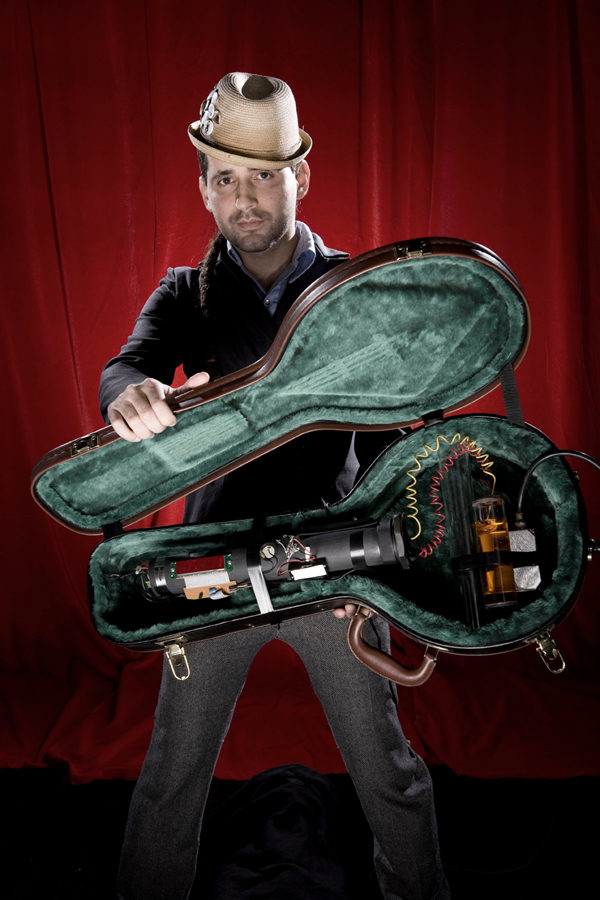Calle 13 doesn't get naked.

Interviewing “big names” is a lot less glamorous than you might think. Record labels lock these poor famous artists in a room for a whole day, prior to the release of a new album (like…say…Calle 13’s Entren Los Que Quieran), and make them answer as many phone calls as possible.
I personally hate being on the phone for too long, so I assume most of these people must hate it too, especially when they have to answer to the same damn questions again, and again, and again. You can tell how bored and annoyed artists are while reciting their memorized answers, just by the tone of their voices. You can tell that inside their heads they’re thinking “I signed up to be a musician, not a telemarketer!” And you wonder how long it’ll be before they replace them with computerized menus, “If you want to know about their next album, press 1. If you want to ask about the singer’s romance with Miss Universe, press 2.”
So there I am, on my cell phone, an hour and 10 minutes after the scheduled time, and a female voice tells me, “I’m gonna put you through to Eduardo.” That’s Eduardo Cabra Martínez, better known as Visitante, multi-instrumentalist and producer of Calle 13 and stepbrother of Residente, to whom all my prepared questions were directed. What the hell, let’s do this.
_____________________________________________________________
______________________________________________
“I’M NOT VERY MOTIVATED BY DOING MUSIC FOR THE ENGLISH-SPEAKING AUDIENCE. I DON’T KNOW IF THEY’D GET IT AND I’M NOT REALLY INTERESTED IN THEM GETTING IT.“
______________________________________________
How do you manage the balance between being critics of the industry and being part of it and benefiting from it?
Fortunately our record label has a lot of respect for what we do. We keep very tight control of our work, we control our music, our lyrics, our videos, our Web site. They respect us a lot. But there are other artists…sometimes artists allow for manipulation.
You have reached such a massive level of exposure within the Latin music industry that it’s hard to imagine where else you’d go, how you can keep growing. Have you considered a crossover to the Anglo market?
My brother is interested in writing in English and being able to communicate with more people. I’m not very motivated by doing music for the English-speaking audience. I don’t know if they’d get it and I’m not really interested in them getting it.
And doing a collaboration with English-speaking artists?
For me, it has to be something that I really like, musically. My brother, he just wants to communicate. So the possibility of my brother doing something in English exists. As for myself, I doubt it.
So, there’s no auto-tune on Calle 13’s new album.
No, definitely not.
_____________________________________________________________
Listen to parts of Calle 13’s upcoming album, Entren Los Que Quieran, and watch the video for “Calma Pueblo” below.
 In “
In “ Were you involved in the recording of Shakira’s song “Gordita”?
Were you involved in the recording of Shakira’s song “Gordita”?